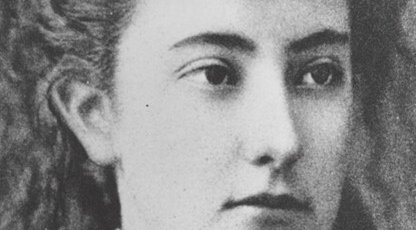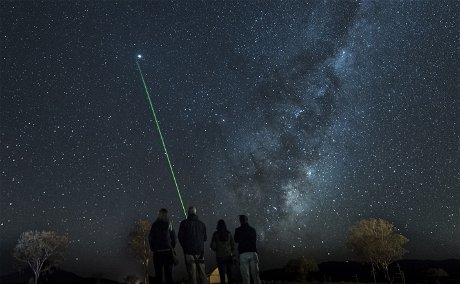Dreams By Olive Schreiner

To a small girl-child, who may live to grasp somewhat of that
which for us is yet sight, not touch.
Note.
These Dreams are printed in the order in which they were written.
In the case of two there was a lapse of some years between the writing of the first and last parts; these are placed according to the date of the first part.
Olive Schreiner.
Matjesfontein,
Cape Colony,
South Africa.
November, 1890.
*The first poem in the series
The Lost Joy
All day, where the sunlight played on the sea-shore, Life sat.
All day the soft wind played with her hair, and the young, young face looked out across the water. She was waiting—she was waiting; but she could not tell for what.
All day the waves ran up and up on the sand, and ran back again, and the pink shells rolled. Life sat waiting; all day, with the sunlight in her eyes, she sat there, till, grown weary, she laid her head upon her knee and fell asleep, waiting still.
Then a keel grated on the sand, and then a step was on the shore—Life awoke and heard it. A hand was laid upon her, and a great shudder passed through her. She looked up, and saw over her the strange, wide eyes of Love—and Life now knew for whom she had sat there waiting.
And Love drew Life up to him.
And of that meeting was born a thing rare and beautiful—Joy, First-Joy was it called. The sunlight when it shines upon the merry water is not so glad; the rosebuds, when they turn back their lips for the sun's first kiss, are not so ruddy. Its tiny pulses beat quick. It was so warm, so soft! It never spoke, but it laughed and played in the sunshine: and Love and Life rejoiced exceedingly. Neither whispered it to the other, but deep in its own heart each said, "It shall be ours for ever."
Then there came a time—was it after weeks? was it after months? (Love and Life do not measure time)—when the thing was not as it had been.
Still it played; still it laughed; still it stained its mouth with purple berries; but sometimes the little hands hung weary, and the little eyes looked out heavily across the water.
And Life and Love dared not look into each other's eyes, dared not say, "What ails our darling?" Each heart whispered to itself, "It is nothing, it is nothing, tomorrow it will laugh out clear." But tomorrow and tomorrow came. They journeyed on, and the child played beside them, but heavily, more heavily.
One day Life and Love lay down to sleep; and when they awoke, it was gone: only, near them, on the grass, sat a little stranger, with wide-open eyes, very soft and sad. Neither noticed it; but they walked apart, weeping bitterly, "Oh, our Joy! our lost Joy! shall we see you no more for ever?"
The little soft and sad-eyed stranger slipped a hand into one hand of each, and drew them closer, and Life and Love walked on with it between them. And when Life looked down in anguish, she saw her tears reflected in its soft eyes. And when Love, mad with pain, cried out, "I am weary, I am weary! I can journey no further. The light is all behind, the dark is all before," a little rosy finger pointed where the sunlight lay upon the hill-sides. Always its large eyes were sad and thoughtful: always the little brave mouth was smiling quietly.
When on the sharp stones Life cut her feet, he wiped the blood upon his garments, and kissed the wounded feet with his little lips. When in the desert Love lay down faint (for Love itself grows faint), he ran over the hot sand with his little naked feet, and even there in the desert found water in the holes in the rocks to moisten Love's lips with. He was no burden—he never weighted them; he only helped them forward on their journey.
When they came to the dark ravine where the icicles hang from the rocks—for Love and Life must pass through strange drear places—there, where all is cold, and the snow lies thick, he took their freezing hands and held them against his beating little heart, and warmed them—and softly he drew them on and on.
And when they came beyond, into the land of sunshine and flowers, strangely the great eyes lit up, and dimples broke out upon the face. Brightly laughing, it ran over the soft grass; gathered honey from the hollow tree; and brought it them on the palm of its hand; carried them water in the leaves of the lily, and gathered flowers and wreathed them round their heads, softly laughing all the while. He touched them as their Joy had touched them, but his fingers clung more tenderly.
So they wandered on, through the dark lands and the light, always with that little brave smiling one between them. Sometimes they remembered that first radiant Joy, and whispered to themselves, "Oh! could we but find him also!"
At last they came to where Reflection sits; that strange old woman who has always one elbow on her knee, and her chin in her hand, and who steals light out of the past to shed it on the future.
And Life and Love cried out, "O wise one! tell us: when first we met, a lovely radiant thing belonged to us—gladness without a tear, sunshine without a shade. Oh! how did we sin that we lost it? Where shall we go that we may find it?"
And she, the wise old woman, answered, "To have it back, will you give up that which walks beside you now?"
And in agony Love and Life cried, "No!"
"Give up this!" said Life. "When the thorns have pierced me, who will suck the poison out? When my head throbs, who will lay his tiny hands upon it and still the beating? In the cold and the dark, who will warm my freezing heart?"
And Love cried out, "Better let me die! Without Joy I can live; without this I cannot. Let me rather die, not lose it!"
And the wise old woman answered, "O fools and blind! What you once had is that which you have now! When Love and Life first meet, a radiant thing is born, without a shade. When the roads begin to roughen, when the shades begin to darken, when the days are hard, and the nights cold and long—then it begins to change. Love and Life WILL not see it, WILL not know it—till one day they start up suddenly, crying, 'O God! O God! we have lost it! Where is it?' They do not understand that they could not carry the laughing thing unchanged into the desert, and the frost, and the snow. They do not know that what walks beside them still is the Joy grown older. The grave, sweet, tender thing—warm in the coldest snows, brave in the dreariest deserts—its name is Sympathy; it is the Perfect Love."
South Africa.
Further Reading
Olive Schreiner (1855–1920) is remembered as one of South Africa’s most influential literary figures and a pioneering feminist. Her works and activism during the late 19th and early 20th centuries left a lasting impact on literature, politics, and social reform in her home country and beyond.




Share This Post